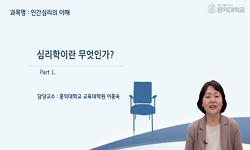오랜 시간 동안 윤리신학은 인간 행위를 규정하는 규범들의 총체로 이해되어 왔다. 이러한 이해는 윤리적 행위의 주체인 인간에 대한 이해를 경시하게 되었고 인간의 윤리성을 단순히 규범...
http://chineseinput.net/에서 pinyin(병음)방식으로 중국어를 변환할 수 있습니다.
변환된 중국어를 복사하여 사용하시면 됩니다.
- 中文 을 입력하시려면 zhongwen을 입력하시고 space를누르시면됩니다.
- 北京 을 입력하시려면 beijing을 입력하시고 space를 누르시면 됩니다.
도메니코 카포네(Domenico Capone)의 윤리사상에 나타난 그리스도 중심의 인간 이해 = Understanding of human centering on Christ shown in Domenico Capone’s Ethics theology
한글로보기https://www.riss.kr/link?id=A107497088
- 저자
- 발행기관
- 학술지명
- 권호사항
-
발행연도
2020
-
작성언어
-
- 주제어
-
KDC
205
-
자료형태
학술저널
-
수록면
179-204(26쪽)
- 제공처
- 소장기관
-
0
상세조회 -
0
다운로드
부가정보
국문 초록 (Abstract)
오랜 시간 동안 윤리신학은 인간 행위를 규정하는 규범들의 총체로 이해되어 왔다. 이러한 이해는 윤리적 행위의 주체인 인간에 대한 이해를 경시하게 되었고 인간의 윤리성을 단순히 규범을 준수하는가 또는 준수하지 않는가에 따라 판단하였다. 도메니코 카포네(Domenico Capone)는 과거의 이러한 윤리신학에 대한 이해를 극복하고자 그리스도를 중심으로 한 인간에 대한 성찰을 시도하였다. 그가 제시하는 인간학적 성찰은 윤리신학에서 다루는 인간과 인간 행위를 이해하는데 있어서 그리스도가 지닌 역할의 중요성을 회복시킨다. 그리스도 중심의 인간 이해는 인간의 구성 요소뿐만 아니라 그 이면 즉 종합적이고 근본적인 가치를 지닌 주체인 인간을 그리스도화 하도록 초대하는 윤리신학의 내용을 이해하기 위한 중요한 해석의 방향을 제시한다. 그리고 그리스도는 인간에게 인격적 존재로서의 존재, 실존, 행위를 수여하며, 인간은 이러한 그리스도의 삼중의 역동성에 응답하면서 그리스도를 닮은 인격적 존재가 되고 공간과 시간 안에서의 실존의 의미를 깨닫게 되며 현실 안에서의 올바른 행위를 수행하게 된다. 카포네의 윤리 사상에서 드러나는 인간이 하느님의 완전한 모상인 그리스도 안에서 하느님의 모상으로 하느님에게 참여하는 인격적 존재라는 이해는 매우 중요하다. 이러한 이해는 하느님의 모상인 인간이 윤리 생활의 주체가 되며, 인격적 존재로서 인간은 하느님의 인격에 참여하게 된다는 의미를 내포하고 있기 때문이다. 카포네의 그리스도를 중심으로 한 인간 이해는 인간의 행위가 단순히 규범에 따라 이루어지는 것이 아니라 그리스도에 의한 참된 존재, 실존, 행위의 의미를 따를 때, 참된 행위가 된다는 것을 알려준다. 따라서 그리스도의 방식을 따라 행위하는 인간은 자유로이 근본적 존재에 책임감 있게 자신을 내어 맡기고 다른 이들과 함께 친교를 이루며 살아가게 된다.
다국어 초록 (Multilingual Abstract)
For a long time, Ethics theology is understood as to the whole of rules to prescribe human deeds. Such an understanding drove to underestimate human, who is the subject of ethical deed, and made to judge human ethicality simply to obey the rule or not...
For a long time, Ethics theology is understood as to the whole of rules to prescribe human deeds. Such an understanding drove to underestimate human, who is the subject of ethical deed, and made to judge human ethicality simply to obey the rule or not to obey. Domenico Capone tried his self-examination on human centering on Christ to overcome such a past understanding of Ethics theology. His proposal of human self-examination recovered the important role of Christ in understanding of human and his/her deed in Ethics theology. Understanding of human centering on Christ presented not only the elements of human but the other side, that invite the human who is the subject of having comprehensive and fundamental value, to Christianize. Then, Christ as a Personal being create Being, Existence and Deeds to human as a personal being. And, human responds to these triple dynamics of Christ, becomes a personal being that takes after Christ, realizes the meaning of existence within time and space, and carries out right deed in the reality. This understanding revealed in Capone’s ethical thought that human is the personal being, participating in God as his image in Christ who is the perfect image of God is very important. Because such an understanding involves the meaning of human, a God’s image, becomes the subject of ethical life, and participates in God’s personality. Capone’s understanding of human centered on Christ instructs that human deed does not made up not simply according to rules, but becomes true deed when he/she follows true meaning of true Being, Existence, and Deeds of Christ. Therefore, human who acts following Christ can leave himself to fundamental Being freely and with responsibility, and can live in communions with other people.
목차 (Table of Contents)
- 들어가는 말 Ⅰ. 인간 이해를 위한 그리스도의 중요성 Ⅱ. 그리스도를 통해 근본적 존재에 참여하는 인간 Ⅲ. 그리스도 안에서 인격적 존재로 행위함을 의미하는 윤리적 생활 나오는 말
- 들어가는 말 Ⅰ. 인간 이해를 위한 그리스도의 중요성 Ⅱ. 그리스도를 통해 근본적 존재에 참여하는 인간 Ⅲ. 그리스도 안에서 인격적 존재로 행위함을 의미하는 윤리적 생활 나오는 말
동일학술지(권/호) 다른 논문
-
부부의 선익(bonum coniugum)의 의미와 내용
- 인천가톨릭대학교 복음화연구소
- 유성현(Ryu Sunghyun)
- 2020
-
- 인천가톨릭대학교 복음화연구소
- 송용민(Song Yongmin)
- 2020
-
- 인천가톨릭대학교 복음화연구소
- 장석흥(Chang Seokheung)
- 2020
-
교회법 제1003조 1, 2항에 따른 병자성사 집전자에 관한 소고
- 인천가톨릭대학교 복음화연구소
- 이현종(Lee Hyunjong)
- 2020




 RISS
RISS 스콜라
스콜라






